Why Jeremy Corbyn supporters want MP selection changes
- Published
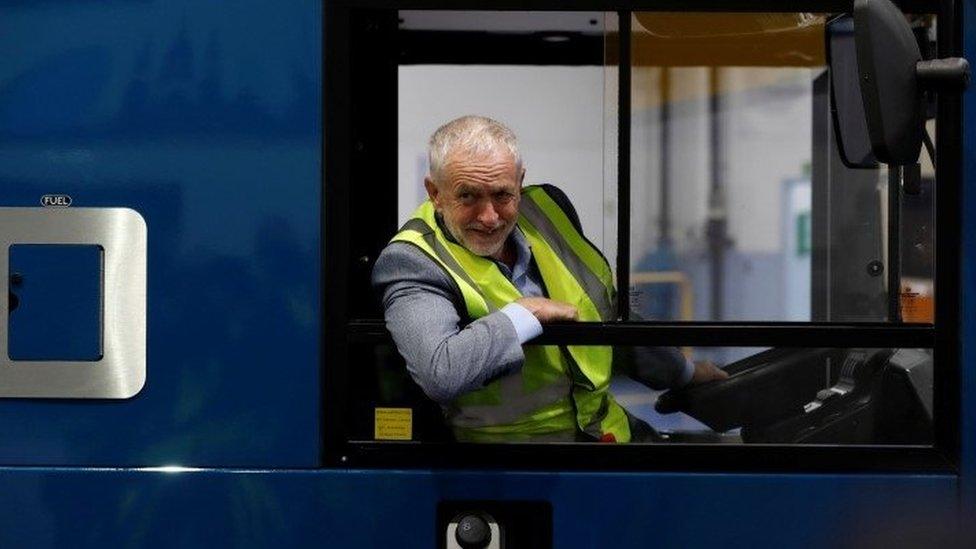
Is there room on the Labour bus for all of its MPs?
The Labour Party is changing - with an influx of new members demanding more of a say over policy and election candidates, and agitating to remove some MPs. What is going on?
In a Rotherhithe theatre hall that looks like the perfect setting for Shakespeare, Labour members gather to discuss plans to make it easier for local parties to remove their MPs.
It's a meeting that's part of a "democracy roadshow" organised by the Jeremy Corbyn-supporting MP Chris Williamson.
But talk of this tour being about plots to oust disloyal MPs is much ado about nothing, according to the Derby North MP.
"It's not a hatefest, it's a lovefest," Chris Williamson tells the 60 or so people who've come to hear him.
Mr Williamson has been holding meetings like this one across the country all summer while the debate in Labour around the selection rules for Westminster MPs has been gaining traction.
Thirteen Labour Party branches are now trying to get the issue of how MPs are selected on to the agenda at the Labour conference in Liverpool later this month.
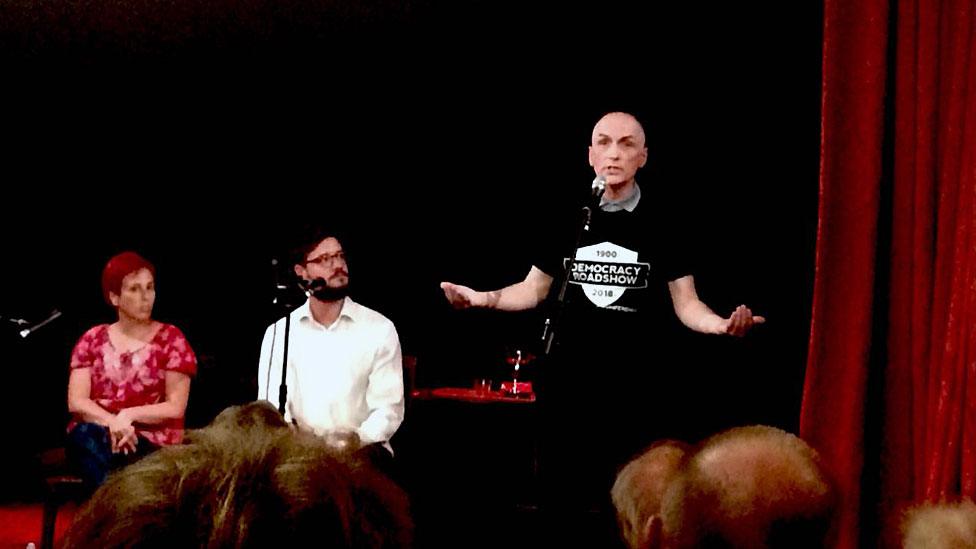
Chris Williamson: It's not a hatefest, it's a lovefest
Some are calling for Labour MPs to be subject to mandatory open contests.
The Jeremy Corbyn-supporting group Momentum also changed its official position earlier this week in favour of an open selection process.
In the theatre hall at Rotherhithe's Sands Films Studio, almost every hand goes up when Mr Williamson asks people who support mandatory re-selection for MPs to raise their hands for a selfie.
But then this is an audience made up of left-wingers - some Labour, some not - who have travelled here on a weekday evening to listen to him speak about the subject, so he's probably preaching to the converted.
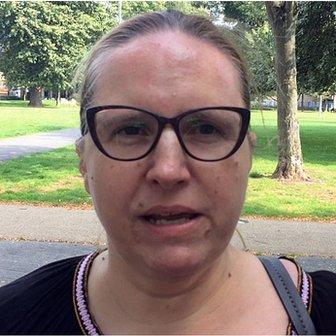
Pascale Mitchell: It's a mechanism to make MPs better
Among them is Pascale Mitchell, a former Liberal Democrat who joined Labour in 2013. She helped to organise the event, and invited me along to watch.
She says trying to change the rules on selection isn't about getting rid of MPs who do not agree with Jeremy Corbyn.
"It means that the MPs will actually work to be more useful for the local people and the communities, because they're under a bit more scrutiny.
"I don't think it's a mechanism to get rid of MPs, I think it's a mechanism to make MPs better."
Her local Labour MP disagrees. Neil Coyle was elected in Bermondsey and Old Southwark in 2015 -pushing out Lib Dem Simon Hughes, who had held the seat for 32 years.
Mr Coyle meets me in a neighbourhood in Bermondsey where knife crime claimed the life of a young man this summer.
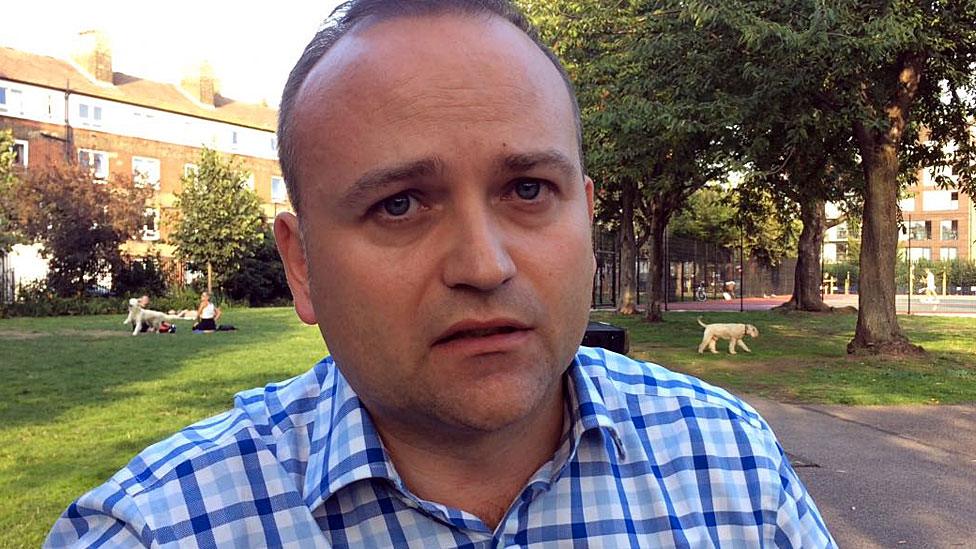
Neil Coyle: They just want "Corbyn clones"
He says what voters here "want to see is a Labour party focused on the struggle they face, on getting crime addressed".
"This is something the government's getting away with and that's something people should hear more from the Labour Party on," he says. "Instead, we're spending hour after hour, day after day, week after week on internal issues that are irrelevant - by and large - not just to the majority of Labour members, but to the vast majority of voters."
Mr Coyle has been a vocal critic of Jeremy Corbyn's leadership of the Labour Party.
He believes that is why his constituency is one of the stops on Chris Williamson's tour - which he says is all about targeting MPs who aren't cheerleaders for the Labour leader.
"This is only coming from those who think that they need more Corbyn clones in Parliament to do better," says Mr Coyle.
"Actually I disagree. If this system had been in place in the past who knows, Blair and New Labour could have used it to get rid of Jeremy Corbyn as an MP.
"It's a very dangerous precedent to suggest that any leader should be able to dictate who their MPs are."
The MP said there was "already a process, the trigger ballot system, which is where members' branches and affiliates can trigger an open selection instead of the automatic retention of their sitting MP".
Under current Labour rules, sitting MPs who wish to stand for re-election are subject to a so-called "trigger ballot" process.
If more than half of the branches and affiliates in the local constituency vote "yes" the MP is reselected.
If they vote "no", then the process is put to an open selection in which other candidates can stand against the sitting MP.
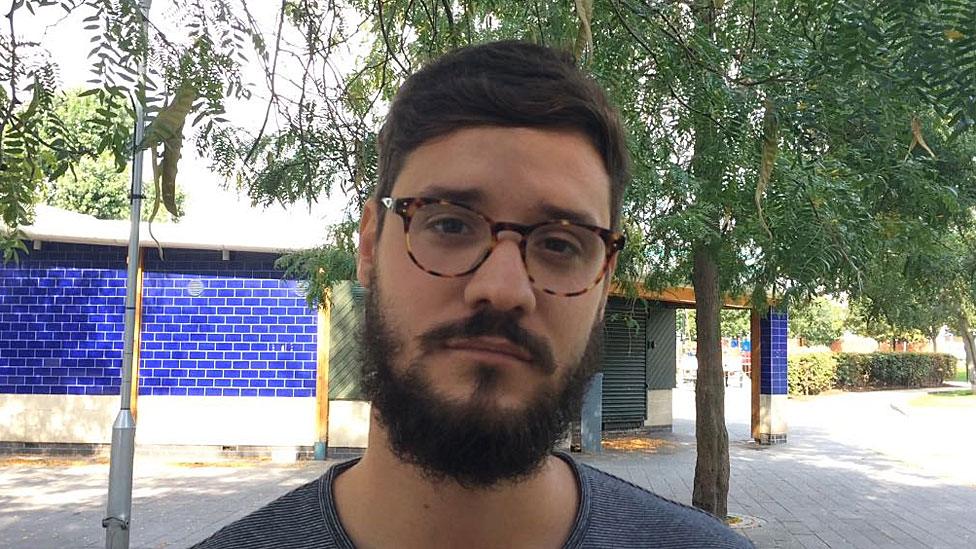
Jack Buck: Selection procedures create a negative atmosphere
Chairing this democracy roadshow meeting in south London is Councillor Jack Buck.
He joined Labour in 2014, is a member of Momentum and was elected to Southwark Council at the local elections in May this year.
He tells me the current system is not fit for purpose.
"I think that the selection procedures at the moment create quite a negative atmosphere.
"The way in which the trigger ballot system works within the party that's been introduced creates this kind of environment of hostility, whereby anybody who wants to see thriving democratic process in the party has to vote against somebody instead of for something.
"I think what Labour party members want is politicians of all stripes putting positive visions forward that they can really get behind and create an atmosphere that's policy-driven."
Policy is another key issue on the agenda at this meeting.
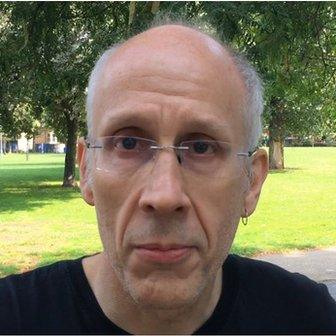
Chris Bright: Members don't have enough policy input
Chris Bright, who's a member of Camberwell and Peckham CLP and the Southwark Momentum group, re-joined Labour in 2015 on the day Jeremy Corbyn became its leader, after having left the party in the 1980s.
He tells me Labour needs to change to meet the needs of the more than half a million-strong membership who want more of a say in its policy direction.
"Members generally feel that they don't have enough input into policy-making.
"We've got a much bigger membership now than in the past and those people want to get engaged in decisions about the direction of the party, national policy, local policy and we feel that the Labour party should be responsive to that and give ordinary members more of an input."
Labour's Democracy Review has been looking at how the grassroots could have a greater say in party matters, and was discussed by the party's ruling body - the National Executive Committee - this week.
But de-selection hasn't been included in the review.
Speaking to me in Rotherhithe, Chris Williamson said that was why local Labour branches across the country are making their own submissions to get the subject on the agenda at conference.
"The mandatory re-selection is not actually part of the terms of reference of the democracy review.
"There are a few motions that have been forwarded by constituency parties.
"The one that I'm backing and I hope that will get support is the one that's been put forward by Labour International, which is calling for open selections so that sitting MPs are subject to an endorsement process between three years and four years into their term of office."
If the motion does make it onto the conference agenda in Liverpool and enough Labour members vote for it, it could end up becoming party policy.